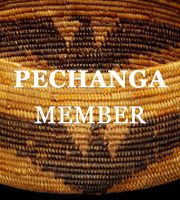Indian lands bill considered Wednesday

 Assembly Bill 52, which would increase the power of California’s Native American tribes to delay or halt development in areas sensitive to Indian heritage, is raising concerns about more lawsuits and slower growth in the state.
Assembly Bill 52, which would increase the power of California’s Native American tribes to delay or halt development in areas sensitive to Indian heritage, is raising concerns about more lawsuits and slower growth in the state.
The bill’s backers contend that current California Environmental Quality Act regulations are not adequate to preserve Indian historical, cultural and sacred sites from encroaching development. But local government officials, developers and business groups disagree.
AB52 is scheduled to be considered by the Senate Environmental Quality Committee on Wednesday. It sailed through the Assembly last year, with no votes against it either in committees or on the Assembly floor (Republicans abstained).
Current law favors Indians
Current CEQA regulations do require the identification of and, when possible, mitigation for Indian cultural resources in the area of a proposed project. Those areas throughout California are defined by the Native American Heritage Commission.
“The law favors leaving the resource in place or in an undisturbed state,” states a legislative analysis of AB52.
But those requirements did not prevent the approval of two projects that one tribe, the Pechanga Band of Luiseño Indians, believes encroaches on sacred lands:
- Riverside County approved a 155-acre rock quarry in an area that the Pechanga Band consider equivalent to the Garden of Eden. A legislative attempt to block the quarry, AB742, died in the Senate in 2011. A few months later, the tribe bought the property for $3 million and paid the mining company an additional $17.35 million to settle their legal dispute, according to the legislative analysis.
- San Diego County approved a 308-acre, 30-million-ton landfill in Gregory Canyon, an area where the Luiseño believe a powerful guardian spirit resides. A legislative attempt to block the landfill, SB833, passed the Legislature.
Gov. Brown ‘pained’ by Indian dispute
But the landfill went ahead after SB833 was reluctantly vetoed by Gov. Jerry Brown. His veto message states:
“I am deeply concerned about the objections raised with respect to the sacred site, but I don’t believe it is appropriate for the Legislature to now intervene and overturn this hard fought local land-use decision. This dispute pains me given the unspeakable injustices the native peoples have endured and the profound importance of their spirituality and connection to the land.
“There’s no question that more thought needs to be given to how we resolve this inherently difficult decision and to find ways for native peoples and their fellow Californians to coexist in an inexorably modernizing world.”
AB52 is an attempt to resolve future land-use disputes in favor of California’s tribes, avoiding their need to sponsor individual bills to stop projects that impact Indian sites. The legislative analysis supports its passage:
“The current planning process needs reform to provide stronger protections for Native American cultural resources. Without such reform, we may see more bills in the future that attempt to defeat projects after they have gone through a lengthy and costly permitting process (and in some cases, lawsuits) simply because an affected tribe was not brought into the planning process in a meaningful way.
“The purpose of this bill is to reform the planning process by bringing tribes into the CEQA process in a manner that will avoid legislation at the eleventh hour to kill projects.”
Gatto: Put yourself in Indians’ shoes
The bill’s author, Assemblyman Mike Gatto, D-Los Angeles, asked the legislators on the Assembly floor June 27, 2013 to put themselves in the place of California’s Indians.
“Imagine the site that is most sacred to you,” Gatto said. “It could be a church, it could be a synagogue, it could be a historical monument. Then imagine somebody seeking to put something on top of it that you disagree with. It could be a dump, it could be a high-rise building. It could be anything you think is not consistent with the dignity of that sacred site. This bill simply clarifies that Native American tribes will have a say in that process.”
Three days earlier in the Assembly Natural Resources Committee, Pechanga tribal attorney Laura Miranda referred to the Riverside quarry dispute as the rationale for this bill.
“This year my tribe was forced to pay over $20 million to preserve our one and only creation area because of a broken CEQA,” said Miranda. “These amendments will help to fix those things to put the tribes in the position of governments as they are.
“It preserves the lead [governmental] agency’s ability to make those decisions, which is something that’s very important to everybody. And it removes what the opposition was saying, that they called ‘tribal veto.’ And so the lead agency has that deference.
“This is a very important bill. Sacred sites are integral to a tribe’s identity. As tribal governments, as tribal people and their culture, this is going to move to level the playing field so tribes have the ability to get input into land use processes in California.”
David Quintana, representing the California Tribal Business Alliance and two Indian bands, noted the approvals of the quarry and landfill and said time is of the essence.
“We need a fix right now,” he said. “I have two tribes that have spent decades and millions and millions of dollars fighting projects, because there’s no comprehensive system currently within CEQA. We need something that provides the non-tribal world some certainty. And that provides the tribal world protection for something that we hold dear to our people.”
Tepid opposition last year
Opposition to AB52 at the June 24, 2013 hearing was tepid, with opponents not wanting to appear insensitive to Native American cultural concerns.
Cassie Gilson, representing the California Building Industry Association, said that she hoped her group’s opposition would be temporary if the bill is changed to address their concerns.
“We’re having quite a productive dialog about how we recognize the issues that the stakeholders raised while providing a level of certainty to project proponents,” she said. “So that they understand as soon as possible in the project’s timeline what the issues are, and they have as long a time period as they are able to resolve those issues with the tribes that have an interest there.”
Representatives from the California Chamber of Commerce and Rural County Representatives of California were also hopeful that a compromise could be reached on the issue.
Strong opposition this year
However, a year later they remain opposed to AB52.
The RCRC with the California State Association of Counties and the California Special Districts Association sent a joint letter to Assemblyman Gatto on June 6. They support working with tribes on projects that could impact Indian lands and resources, but believe expanding CEQA would do more harm than good.
The letter states:
“AB52 would create significant uncertainty and increased potential for litigation for lead agencies. While the bill lists specific criteria for what constitutes a tribal cultural resource, it also explicitly notes that cultural resources are not limited to those criteria.
“Additionally, the new language creates a new legal standard by requiring a preponderance of the evidence to demonstrate that a tribal cultural resource is not culturally significant.
“The bill also prevents the disclosure of the location and nature of a tribal cultural resource to the project proponents. While this requirement is clearly appropriate for specific sites that could be at risk of depredation if their location is revealed, it does not easily lend itself to resources that have broader geographic scope; for instance, landscapes considered sacred by a tribe.
“Lead agencies could be faced with requiring project proponents to make changes to their proposals without being able to clearly delineate the cultural resources that the revisions must protect.”
They are also concerned that the bill goes overboard by requiring tribal consultation at four different points in the CEQA process, including the late stage of the public comment period for the environmental impact report. The letter states:
“This is too late in the process to be productive and runs counter to the goal of the bill which is to promote early consultation.
“[R]ather than complicating the CEQA process by adding a new, broadly defined class of potential significant environmental impacts – a subset of which are already covered by existing CEQA statute – we feel that project-by-project consultation should be governed by the Government Code. This approach would avoid the many potential pitfalls of grafting this new class of impacts onto an already complex body of law.”
Chamber: It’s a ‘job killer’
The Chamber of Commerce also remains opposed, listing AB52 as a “job killer.”
AB52 “will create a disincentive to invest in land, whether to build affordable housing, schools and universities, or construct needed infrastructure such as renewal energy projects, or roads and highways,” the Chamber states in a message to members.
It “is a dramatic expansion of CEQA that inserts spiritual beliefs into an environmental statute and, as a practical matter, grants Native American tribes irrefutable authority to determine anything is a Tribal Cultural Resource entitled to CEQA protection.”
“[We] remain very concerned with AB 52’s dramatic granting of land-use power to tribal governments, the new complications the bill creates for environmental impact reviews under CEQA, and the costs the measure would impose on future projects throughout the state.”
Other than Gatto, AB52’s biggest supporter might be Assemblyman Wesley Chesbro, D-Arcata, who argued it will help correct injustices perpetrated by white settlers in America.
“We frequently stop to acknowledge historic injustices that have been done around the world,” Chesbro said. “We seldom do that for Native American tribes. But it’s important for us to stop and acknowledge that all of this – all of this – was once theirs. And as a result of that, I think this is a small amount of evening things out. … So that they have a fighting chance of protecting what they do have left of their original heritage and spiritual sites.”
Wednesday’s Senate Environmental Quality Committee hearing will be the last policy committee consideration of AB52 before it goes to the Senate floor.
Related Articles
Suicidal California Amazon Tax
March 24, 2011 By JOHN SEILER Sometimes I wonder if the politicians, special interests and most media in California have
Initiative reform — one bridge short
As someone who participated in the working group on initiative reform package that ended up as SB1253 by state Sen. Darrell
Initiatives tax state budget
APRIL 13, 2010 By JOHN SEILER Drastic times call for innovative measures. California’s budget problem this year certainly is so



